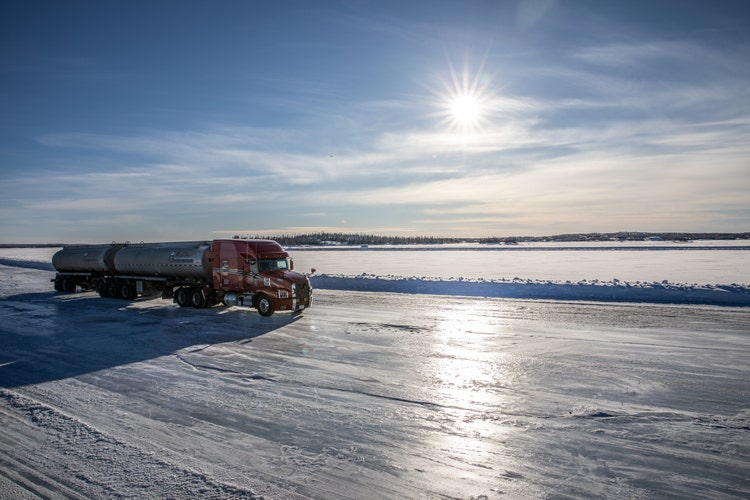Prepare for winter to keep safe, warm and rolling.
With winter rapidly approaching, now is the perfect time to make sure your trucks are prepared for ice, snow, and extreme temperatures. When a truck isn’t properly winterized, it’s often the driver who pays the price.

“It’s freezing cold, you’re 10-20 hours from the closest place you know, and your truck won’t start,” says Jordan Hunsicker, senior trucks product training manager for Mack Trucks. “And then you’re up a creek without a paddle. That’s the risk when you don’t prepare for winter.”
To stay safe this winter, follow these tips:
- Test your batteries. Check to see if your batteries are holding charge or if they’re expired. “If you’re having trouble starting the truck during the summer, they’re really not going to do well in the winter,” Hunsicker says.
- Check your coolant level. Make sure you don’t have any leaks and that there’s the right level of antifreeze in your engine.
- Defrost your windshield. Some truck models come with heated windshields; if this is the case for your truck, check to make sure the heating element is working. This is also a good time to check your windshield wipers and refill your windshield washer reservoir with a fluid that includes methanol (a minor de-icing agent).
- Are you using the right engine oil? For drivers in extremely cold climates—such as parts of Canada or states like North Dakota—consider using a lighter weight oil such as 5W-30 or 5W-40. Hunsicker explains, “If you use something like a 15W-40 and it’s really cold, it could actually cause engine damage, because the oil’s so thick that it won’t get moving when you start the engine up.”
- Have spare filters on hand. When diesel fuel gets below 14 degrees Fahrenheit, it can develop a paraffin wax that can build up in your filter and block fuel flow to the engine. Keep spare filters available so that you’re prepared if this happens to you.
- Winterize your tires. You don’t want to run summer-style tires on icy roads if you can help it. Make sure your tires’ tread isn’t too low and replace them if necessary. While you’re here, check on your tire chains as well; if they’re rusty or broken, you should replace them before winter comes.
- Inspect the radiator. The winter front covers the radiator and helps keep the engine warm, thus helping to keep you warm inside the cab; you don’t want it going out on a frigid day. Make sure your winter front isn’t missing and that it doesn’t have any big rips or tears.
- Prepare an emergency kit. In case something goes wrong, it’s good to have a few essentials on you. This can include jumper cables, an ice scraper, a phone charger, flares, reflective triangles, and bottled water. One outside-the-box suggestion? A bag or bucket of sand. Hunsicker says, “Sand can help you get grip and provide extra traction.”
- Check crucial features on your truck. Manually check to make sure that your truck’s heater, defroster, air dryer, and engine block heater or oil pan heater are all working. It might be tedious now, but when winter comes, you’ll be happy you did it.

Bulldog® Magazine
Subscribe to Bulldog® Magazine
Be the first to know all the news about Mack Trucks and our products, plus other exciting activities.